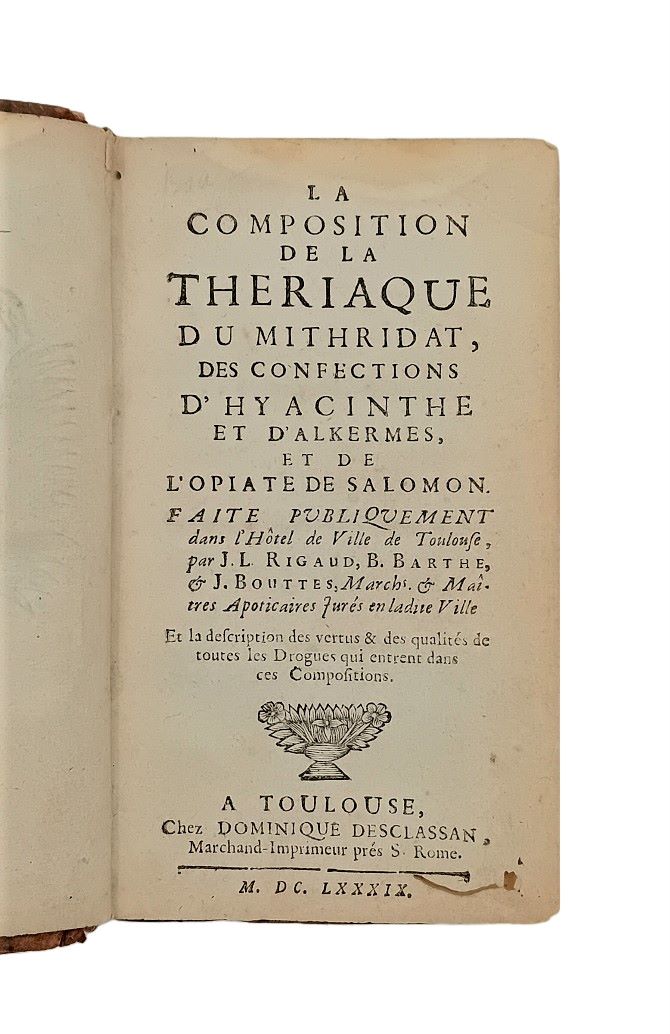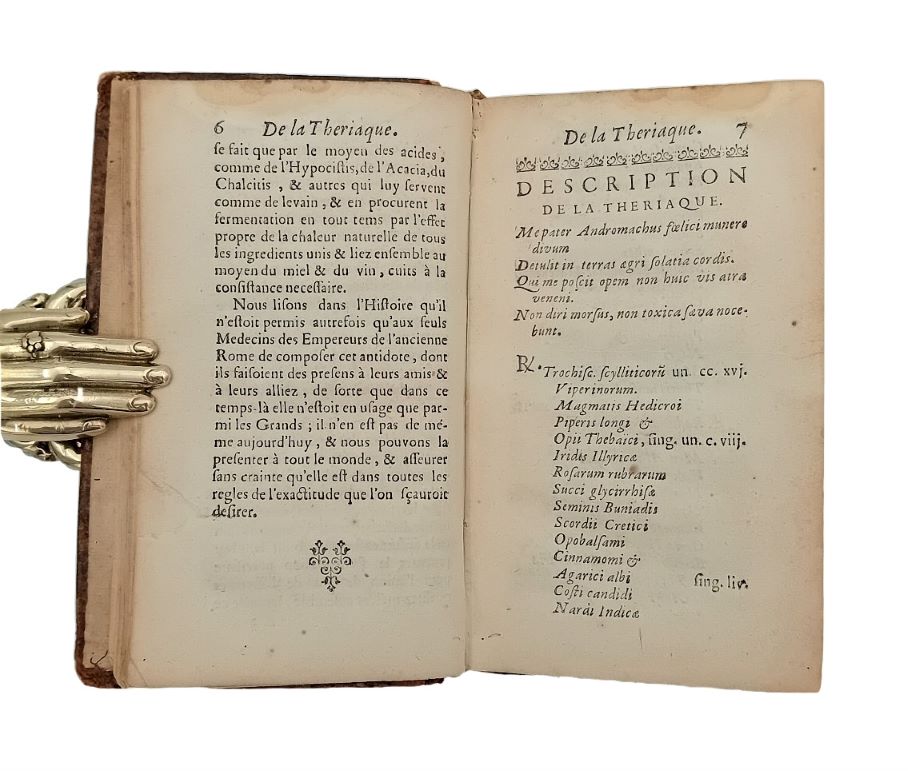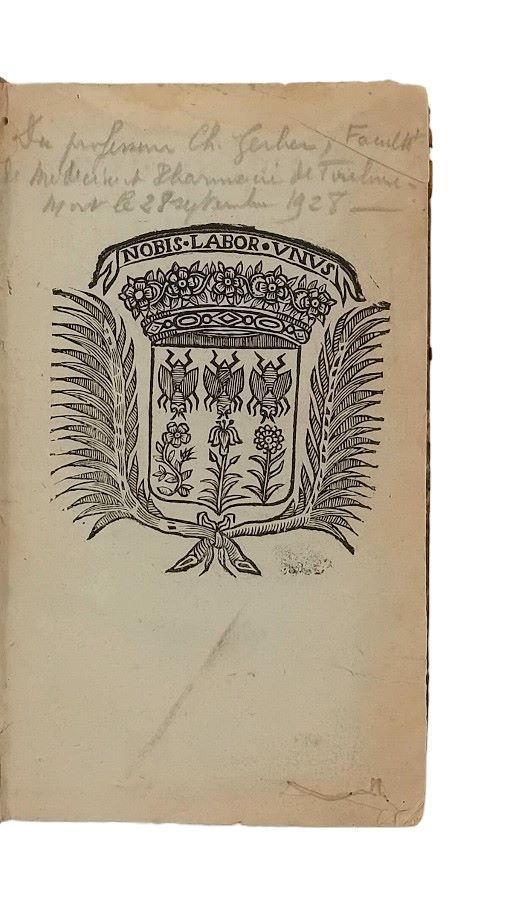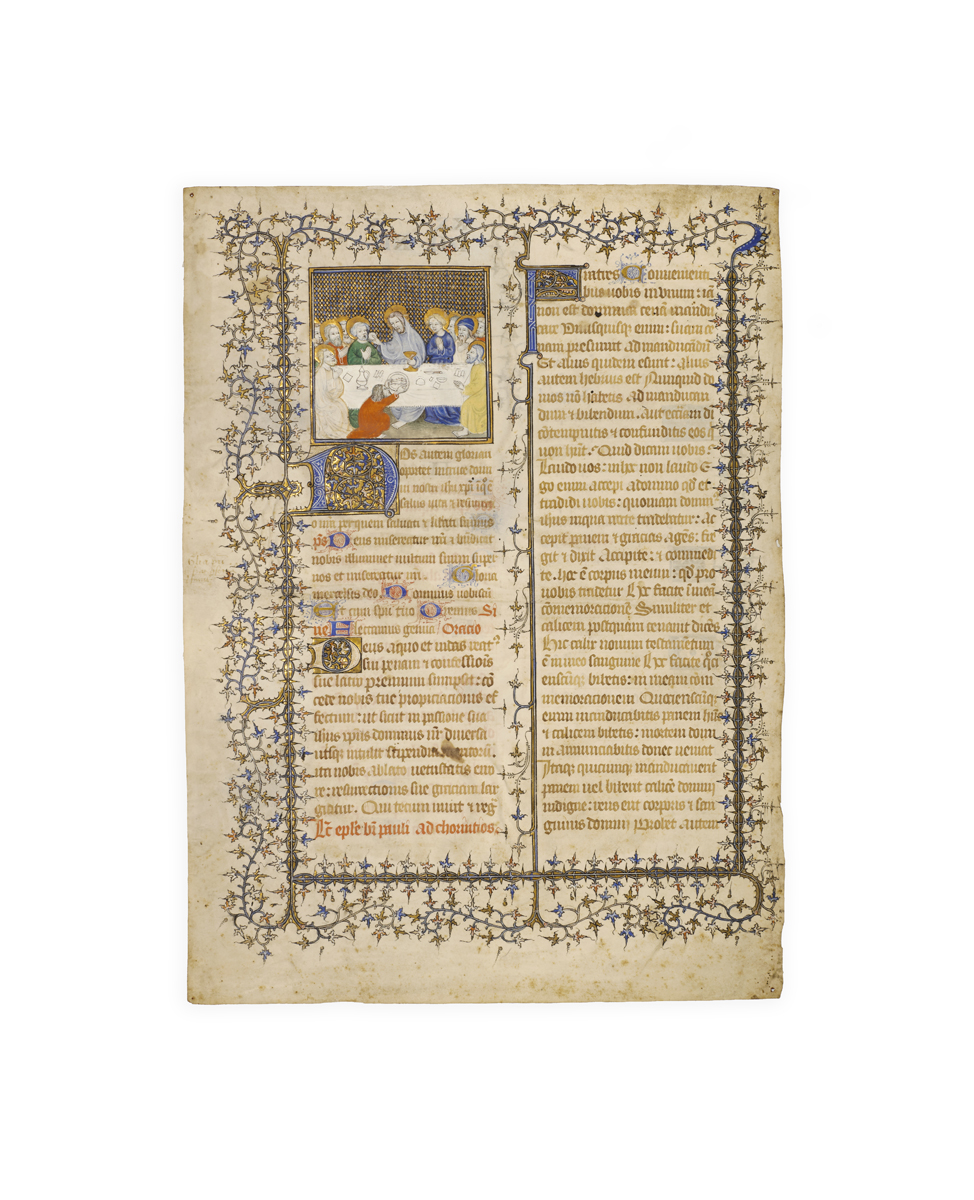


Promoting Panaceas
[MEDICINE.]
La composition de la theriaque du Mithridat, des confections d’hyacinthe et d’alkermes, et de l’opiate de Salomon. Faite publiquement dans l’hôtel de ville de Toulouse, par J. L. Rigaud, B. Barthe, et J. Bouttes, marchs. et maîtres apoticaires jurés en ladite ville. Et la description des vertus et des qualités de toutes les drogues qui entrent dans ces compositions.
Toulouse, Dominique Desclassan, 1689.
12mo, pp. [22], 50 [recte 150], [6 (index)], with woodcut arms (‘Nobis labor unus’) to first page; small loss to blank fore-edge of pp. 5-6, some mostly marginal worming, slight damp staining to upper margins; overall good in contemporary calf; worn, some losses to spine and corners, marks to covers; pencil note at head of first page recording ownership of Charles Gerber (1865-1928, professor of medicine and pharmacy at Toulouse).

Added to your basket:
La composition de la theriaque du Mithridat, des confections d’hyacinthe et d’alkermes, et de l’opiate de Salomon. Faite publiquement dans l’hôtel de ville de Toulouse, par J. L. Rigaud, B. Barthe, et J. Bouttes, marchs. et maîtres apoticaires jurés en ladite ville. Et la description des vertus et des qualités de toutes les drogues qui entrent dans ces compositions.
First edition of this rare and most interesting work on ancient antidotes and tonics by three apothecaries of the city of Toulouse in the south of France.
After complaining of the prevalence of charlatans peddling products of no medicinal value, Messrs Rigaud, Barthe, and Bouttes state that they will publicly compose, in Toulouse’s town hall, five ancient yet effective panaceas, laying out all their ingredients (sourced at no little trouble and expense) along with the finished products for public inspection and scrutiny.
The text then discusses the history, ingredients, composition, and virtues of each of the five medicines in turn, beginning with theriac and mithridate, said to have been invented by Mithridates of Pontus in the 1st century BC, and here described as ‘the first and the most excellent of remedies in all of medicine’. Among the ingredients discussed are viper flesh, opium, red roses, and the beaver secretion known as castoreum. The text then considers the tonics called Confection of hyacinth and Alchermes, whose constituents included jacinth, stag horn, ivory, pearl, and lapis lazuli, and the so-called Opiate of Solomon, recommended against fevers, worms, and stomach ache, and as an aid to digestion.
No copies traced in the US, and only one location found in the UK (Wellcome Library).

